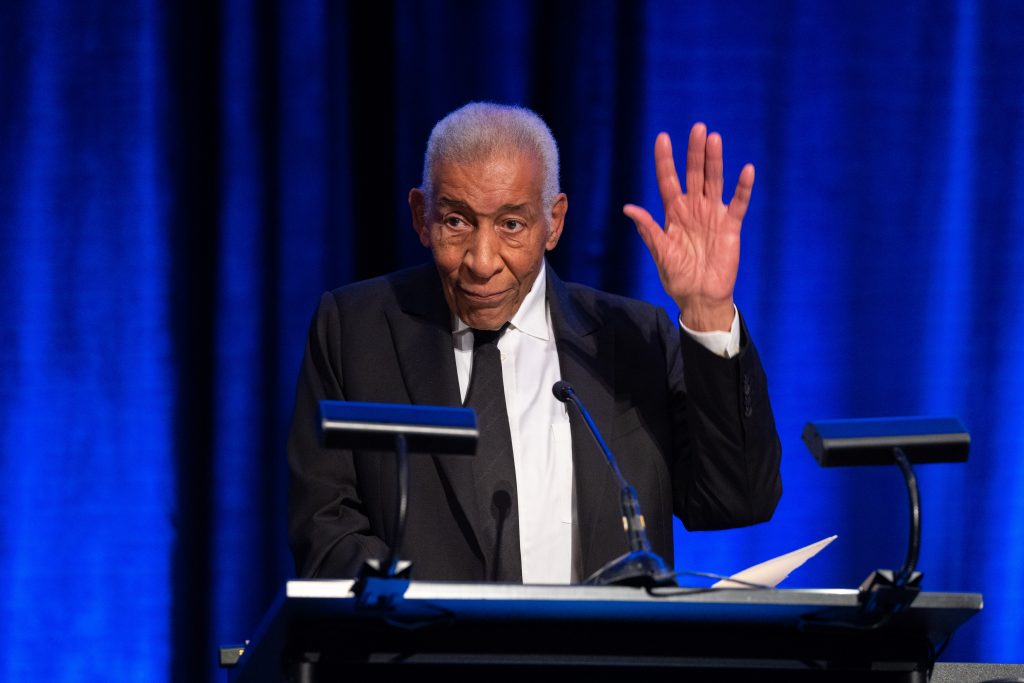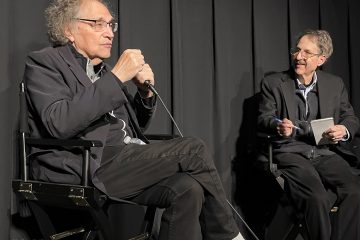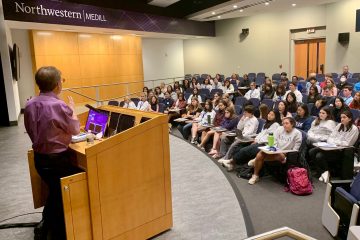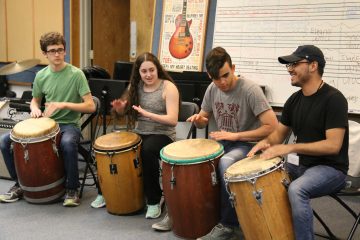A flurry of activity celebrating ‘For the Left Hand’
The past few weeks have been a whirlwind for “For the Left Hand.”
No event was more moving than when Norman Malone received the Grant Park Music Festival’s Advocate for the Arts Award on Oct. 27 at the Fairmont Chicago hotel. With nearly 500 guests attending the festival’s biggest fundraiser of the year, Norman accepted an honor previously bestowed on no less than architect Frank Gehry and sculptor Anish Kapoor.

The audience watched raptly as a “CBS Evening News” report on Norman played on two large screens. Then Norman took the stage to share a few thoughts about his remarkable personal journey.
“I feel incredibly blessed to have been able to make music my life’s work, despite an injury that almost made that impossible,” he told the crowd.
Music, continued Norman, “has transformed my life and even helped me survive. After my injury, I knew I wanted – needed – to get back to playing piano, even though the odds were against me.
“My students say I was strict and passionate as we rehearsed our Christmas concerts and other performances. But I hope they know – and I think they do – that I was always proud of them and honored to help them realize the tremendous, lifelong benefits that come with exposure to music and performance at an early age.
“Music is a language and a bridge-builder, an essential part of growing up and living life to its fullest,” Norman continued. “Sadly, though, music education has deteriorated – especially for those who need it most. And that’s why it gives me hope to see how the Grant Park Music Festival reaches and inspires children, through the free concerts, camps, training for young artists and more. Thank you for supporting this important work.”
The audience rose to its feet after Norman concluded his remarks.
Click here to see more photos from the evening.
On Oct. 14, co-director Gordon Quinn and writer/co-producer Howard Reich traveled to Ann Arbor, Mich., where the Ann Arbor Symphony Orchestra presented the film at the sumptuously restored Michigan Theater. Afterward, Norman appeared on the screen via Zoom to answer questions from the audience.
One viewer who had suffered a spinal injury asked Norman where he found the strength to persevere after his injury.
“God, I suppose,” he said. “I don’t know. I just don’t like obstacles. I keep on going. Never give up. Even now, I have better days and worse days. Never give up.”
On Sept. 30, Molloy University in New York screened “For the Left Hand” and “Prisoner of Her Past,” both directed by Gordon Quinn and inspired by Howard Reich’s stories. After each screening, a panel of Molloy professors discussed the documentaries’ impact.
Molloy University president James Lentini, who’s also an accomplished composer and guitarist, was especially struck by one aspect of “For the Left Hand.”
“Whenever we saw the score on the screen and heard the music being played – that was the correct music that was being shown!” he told the audience, marveling at this level of accuracy and care.
That’s not always the case in film and TV shows, and musicians instantly know when the wrong music is being shown onscreen.
Because “FTLH” filmmakers always have aspired to reach both musicians and nonmusicians, they made sure that every musicological detail was attended to.
The result is a film in which Norman shares the screen with another fascinating character: Ravel’s Piano Concerto for the Left Hand, a piece he has been practicing for more than 60 years.


